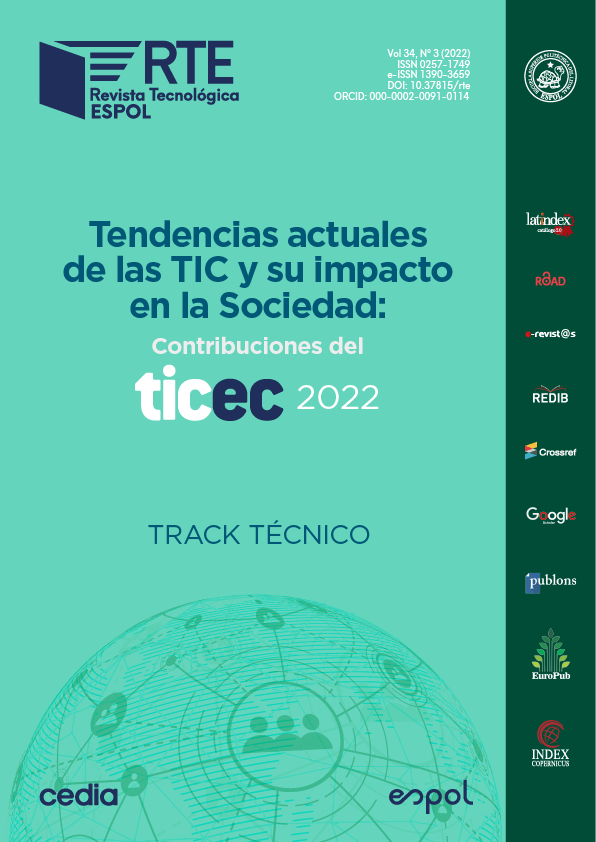Massive Open Online Courses (MOOCs) have become a disruptive technology that has aimed to democratize access to education. These are courses that are offered openly, generally on a MOOC platform such as Open edX. These are courses that are offered openly, generally on a MOOC platform such as Open edX, and are taken by hundreds of thousands of students autonomously (without the presence or guidance of a teacher). When a MOOC is closed to a smaller number of students and is used privately and integrated into the academic curriculum, it is known as a Small Private Online Course (SPOC). SPOCs, unlike MOOCs, require the presence and guidance of a teacher while students take the course. However, the Open edX platform lacks visualizations to assist students and teachers in making decisions during the course. In other words, follow-up and monitoring is scarce and limited. For this reason, the present work proposes to develop a component called XBlock that implements, on the one hand, visualizations for students in order to account for their learning process; and, on the other hand, visualizations for teachers so that they can monitor, follow up and give feedback to students in a SPOC. To achieve this, the methodology adapted from LATUX was used for the planning, design and implementation of an XBlock and also for the evaluation of the visualization of the dashboard. As a result of the evaluation, it was found that about 80% of the students perceive the developed XBlock as a positive stimulus to redirect student behavior. In addition, it contributes as a support for teachers when designing teaching strategies that allow them to monitor and provide better feedback to students so that they can successfully complete the course.

This work is licensed under a Creative Commons Attribution-NonCommercial 4.0 International License.
References
Antonaci, A., Klemke, R., Kreijns, K., & Specht, M. (2018). Get Gamification of MOOC right! International Journal of Serious Games, 5(3), 61–78. https://doi.org/10.17083/ijsg.v5i3.255
Ben Kei, D. (2016). Overview of big data and analytics in higher education. In Big Data and Learning Analytics in Higher Education: Current Theory and Practice (pp. 1–4). Springer International Publishing. https://doi.org/10.1007/978-3-319-06520-5_1
Boroujeni, M. S., & Dillenbourg, P. (2018). Discovery and temporal analysis of latent study patterns in MOOC interaction sequences. ACM International Conference Proceeding Series, 206–215. https://doi.org/10.1145/3170358.3170388
Dhawal Shah. (2020, November 30). MOOCs in 2020. https://www.classcentral.com/report/mooc-stats-2020/
edX Inc. (2021). Introduction to XBlocks. https://edx.readthedocs.io/projects/xblock-tutorial/en/latest/overview/introduction.html
Khalil, M., & Belokrys, G. (2020). OXALIC: An Open edX Advanced Learning Analytics Tool. Proceedings of 2020 IEEE Learning With MOOCS, LWMOOCS 2020, 185–190. https://doi.org/10.1109/LWMOOCS50143.2020.9234322
Laugwitz, B., Held, T., & Schrepp, M. (2008). Construction and evaluation of a user experience questionnaire. Lecture Notes in Computer Science (Including Subseries Lecture Notes in Artificial Intelligence and Lecture Notes in Bioinformatics), 5298 LNCS, 63–76. https://doi.org/10.1007/978-3-540-89350-9_6
Maldonado-Mahauad, J., Pérez-Sanagustín, M., Kizilcec, R. F., Morales, N., & Munoz-Gama, J. (2018). Mining theory-based patterns from Big data: Identifying self-regulated learning strategies in Massive Open Online Courses. Computers in Human Behavior, 80, 179–196. https://doi.org/10.1016/j.chb.2017.11.011
Maldonado, J. J., Palta, R., Vazquez, J., Bermeo, J. L., Perez-Sanagustin, M., & Munoz-Gama, J. (2016). Exploring differences in how learners navigate in MOOCs based on self-regulated learning and learning styles: A process mining approach. Proceedings of the 2016 42nd Latin American Computing Conference, CLEI 2016. https://doi.org/10.1109/CLEI.2016.7833356
Martinez-Maldonado, R., Pardo, A., Mirriahi, N., Yacef, K., Kay, J., & Clayphan, A. (2016). LATUX: an Iterative Workflow for Designing, Validating and Deploying Learning Analytics Visualisations. Journal of Learning Analytics, 2(3), 9–39. https://doi.org/10.18608/jla.2015.23.3
Nemoto, T., & Beglar, D. (2014). c. JALT2013 Conference Proceedings, 1–8. https://dl.ndl.go.jp/info:ndljp/pid/8815334?itemId=info%3Andljp%2Fpid%2F8815334&__lang=en
Perez-Alvarez, R. A., Maldonado-Mahauad, J., Sharma, K., Sapunar-Opazo, D., & Perez-Sanagustin, M. (2020). Characterizing Learners’ Engagement in MOOCs: An Observational Case Study Using the NoteMyProgress Tool for Supporting Self-Regulation. IEEE Transactions on Learning Technologies, 13(4), 676–688. https://doi.org/10.1109/TLT.2020.3003220
Purwoningsih, T., Santoso, H. B., & Hasibuan, Z. A. (2019). Online Learners’ Behaviors Detection Using Exploratory Data Analysis and Machine Learning Approach. Proceedings of 2019 4th International Conference on Informatics and Computing, ICIC 2019. https://doi.org/10.1109/ICIC47613.2019.8985918
Ramesh, A., Goldwasser, D., Huang, B., Daume, H., & Getoor, L. (2014). Learning latent engagement patterns of students in online courses | Proceedings of the Twenty-Eighth AAAI Conference on Artificial Intelligence. ACM Digital Library, 1272–1278. https://dl.acm.org/doi/abs/10.5555/2893873.2894071
Ruipérez-Valiente, J. A., Muñoz-Merino, P. J., Pijeira Díaz, H. J., Ruiz, J. S., & Kloos, C. D. (2017). Evaluation of a learning analytics application for open edX platform. Computer Science and Information Systems, 14(1), 51–73. https://doi.org/10.2298/CSIS160331043R
Scheffel, M., Niemann, K., & Jivet, I. (2017). The Evaluation Framework for Learning Analytics.
Schrepp, M., Hinderks, A., & Thomaschewski, J. (2017). Design and Evaluation of a Short Version of the User Experience Questionnaire (UEQ-S). International Journal of Interactive Multimedia and Artificial Intelligence, 4(6), 103. https://doi.org/10.9781/IJIMAI.2017.09.001
Schunk, D. H., & Zimmerman, B. J. (2012). Motivation and self-regulated learning: Theory, research, and applications. Motivation and Self-Regulated Learning: Theory, Research, and Applications, 1–417. https://doi.org/10.4324/9780203831076
Sedrakyan, G., Mannens, E., & Verbert, K. (2019). Guiding the choice of learning dashboard visualizations: Linking dashboard design and data visualization concepts. Journal of Computer Languages, 50, 19–38. https://doi.org/10.1016/J.JVLC.2018.11.002
Shah, D. (2020). By The Numbers: MOOCs in 2020 — Class Central. https://www.classcentral.com/report/mooc-stats-2020/
Torre, M. V., Tan, E., & Hauff, C. (2020). EdX log data analysis made easy: Introducing ELAT: An open-source, privacy-aware and browser-based edX log data analysis tool. ACM International Conference Proceeding Series, 502–511. https://doi.org/10.1145/3375462.3375510
Vermunt, J. D., & Donche, V. (2017). A Learning Patterns Perspective on Student Learning in Higher Education: State of the Art and Moving Forward. Educational Psychology Review, 29(2), 269–299. https://doi.org/10.1007/s10648-017-9414-6







